Despite a few high-profile successes, there are still depressingly few sitcoms written by women. Chelsea Kania asks why
I’m watching a comedy show, but I feel like crying – and not because I’m sitting on a broken plastic chair in a windowless vault at Edinburgh Fringe. Jodie Sloan’s show Jodie Sloan: Is she hot?, about being trolled over her looks after her picture went viral on TikTok (which includes a song about being pressured to do anal while her mother dies of cancer) is a heartbreakingly funny, uncut gem of a show.
But what’s making me deeply sad is the fear that, even though the Fringe is an incredible talent pool for TV to draw from, this show will never make it out of this cave. Not because Sloan isn’t brilliant or because thousands of women and men (equally represented in this audience) wouldn’t laugh, cry and cringe at her juxtaposition of anal and death, but because the UK simply isn’t commissioning women in comedy.
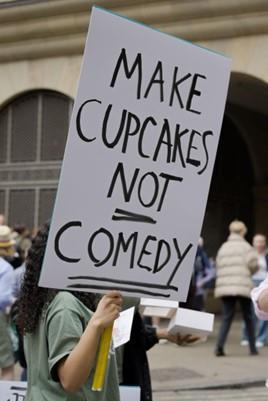
I’ve seen it before, with another brilliant woman comedian Leigh Douglas, whose show ROTUS: Receptionist of the United States enjoyed a sold-out Fringe run this year. In 2023, a live reading of her comedy pilot Queer Jig played to a packed-out audience as part of Female Pilot Club’s annual showcase. FPC, run by Dr Kay Stonham, producer Emily Chase and myself, stages such live read throughs of British comedy talent for public and industry audiences alike. Each year, we receive hundreds of submissions and select just a few – more when the likes of BBC Comedy get involved, as was the case this year.
Douglas’s script, Queer Jig, was performed for an industry audience curated by UKTV through an inspired diversity initiative piloted by Sarah Asante, which has since been shuttered. Queer Jig was as brilliant as Douglas is, as brilliant as ROTUS is, but since then it has gone nowhere.
There were an estimated 3,300 acts at Fringe this year – and of more than 500 comedy shows listed in the press database, over half were principally performed and/or written by women.
But when it comes to TV sitcoms, the statistics haven’t changed since 2018, when a landmark report by the Writers’ Guild of Great Britain determined that only 11% of sitcoms were written predominantly by women. Recently, my FPC colleague Dr Kay Stonham, whose work investigates inequalities in British TV and radio comedy commissioning processes, took another look. She found that last year, comedy-drama series were pretty equitably helmed by women, men and mixed teams. But of the adult sitcoms airing on British TV, three (11%) were created and written solely by women, 12 (43%) were created and written solely by men, and 13 (46%) were created or written by both men and women. Only two of those mixed-sex writers’ rooms were majority women.
Yes, change is often slow. But here, it is non-existent.
And it’s not for lack of significant public discussion about equality for the past seven years, the rise (and fall) of diversity initiatives, nor general good intent within the industry. I know and work with many entertainment folks who are passionately and physically invested in championing women in comedy. So it’s worth taking a closer look at some of the systemic data in effort to understand why nothing has shifted.
TV comedy commissioning is declining, but remains male
Last year, Ampere Analysis found that in 2023, the BBC reined back on comedy commissions with a 27% drop in orders – compared to an 18% decline in scripted commissioning overall.
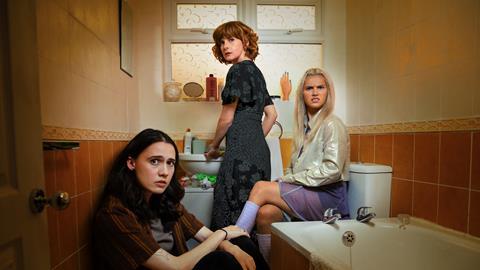
Dr Stonham’s analysis of British Comedy Guide’s 2024 report found that of the 28 sitcoms commissioned by the BBC, nine were written only by men, and three only by women. Comedy writer credits across all BBC channels included 27 men and 6 women (excluding four women who were given ‘additional material’ or ‘creator’ credits).
And sitcoms written solely by women were broadcast only on BBC Three.
The BBC was responsible for about half of all scripted shows ordered that year. Meanwhile Channel 4 and ITVX had no sitcoms written only by women, but several written by men and mixed teams. Hoewever, Nida Manzoor’s We Are Lady Parts shifted to solely women writers credited in 2024.
So why does the number of female writers remain so low?
‘Terror management theory’ is a psychological explanation for when, during a crisis, people double down on cultural worldviews and familiar values. In economics, this translates into ‘status quo bias’: a preference for maintaining current states or practices in uncertainty. In politics, the ‘rally-round-the-flag effect’ describes how populations support existing leaders or institutions more fervently, even if they risk worsening the crisis. This should all sound pretty familiar.
Comedy commissioning is in crisis, and true to the tendencies described above, it’s clinging to its gender-imbalanced ways. But worse, it may be that the crisis is feeding itself; keeping women out of the mix does not extend a lifeline for TV – it limits it.
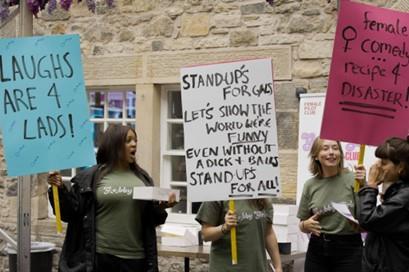
For that reason, it’s especially important to acknowledge that a number of standout women have managed to make the cut in recent years, enabling the UK to boast shows such as Such Brave Girls, Motherland, Amandaland, and The Change. Indeed, these examples ought to provide powerful proof that female creators deserve further commissioning – instead, it’s very possible that these kinds of high-profile examples are giving the illusion that the gender gap has narrowed, and the problem is solved.
And women aren’t only underrepresented in the writing room. BAFTA-winning comedy director Ruth Pickett’s industry research spanning 2022-2024, written about by Chortle this year, found that, across all channels, 17% of series were solely directed by women (27 of 163 series), compared with 67% of series solely directed by men (110 of 163 series). Unsurprisingly, 65% were solely directed by white men.
Pickett originally intended the research to be a positive project, simply a list of who was making what across the comedy industry. But, she says: “As I progressed, I became more and more disheartened, as the same tiny pool of white male director names came up over and over again – and I began to realise how shockingly low female representation for directors within comedy is.”
Pickett also identified thirteen leading production companies known primarily for comedy, and observed that of the 71 scripted comedy series these companies made between 2022 and 2024, 82% of directors were men, more than half the companies employed more than 66% white male writers and six companies employed no female directors at all.
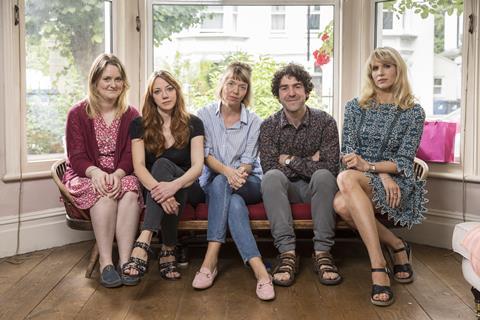
But when it comes to the role of producer, data takes a sharp turn.
A Creative Diversity Network Diamond 7.5 Report of 2022/23 and 2023/24 off-screen representation of women in senior TV roles across all genres found that women made up 87.6% of heads of production, 58.4% of producers and 55.7% of commissioning editors. Even as executive producers and series producers, women remained nearly balanced with their male counterparts.
But across the whole industry, women made up just 39.8% as writers and 27.3% of directors.
And when it comes to comedy, Pickett found that between the 2022 and 2024 period, women constituted just 34.2% of writers and 24.2% of directors.
It seems that only when “producer” exists in the title do women have a fair chance at the job.
Gina Lyons, award-winning scripted producer, founder of Gobby Girl Productions and the Gobby Girls network of women in entertainment, argues that the prevalence of female producers “has complexities of its own”, with women often seen as playing “the ‘mum’ role of a production” while “the director is then often male, a ‘safe pair of hands’”.
Female comedy writers are out there
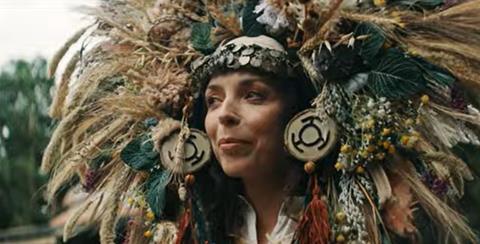
At this year’s Fringe, Female Pilot Club and Gobby Girls collaborated to stage The 11% Club, a comedy sketch show intended to draw awareness to the statistics and – just as importantly – to the show’s nineteen writers and eight performers. The sketches were chosen from a juried pool of hundreds submitted by female writers across the country, and the performers from a score of actors who auditioned.
We were packed out for our whole week’s run.
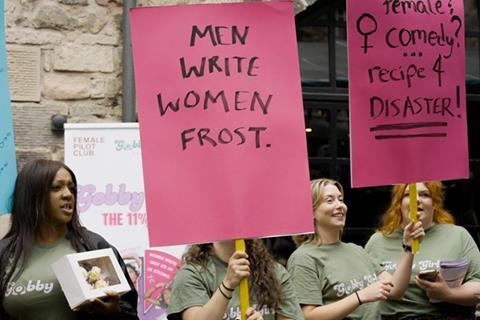
It is difficult to be optimistic that these kinds of shows can make a difference, but we must continue to put them on, and to push for the artists involved to be recognised. Not because they are women, but because they are damn talented and statistically desirable.
The many artists showcased by initiatives like Female Pilot Club, Gobby Girls and Funny Women are indicative of the reality that UK women have been enthralling audiences by writing, directing and creating comedy for decades wherever doors manage to open for them – including at Fringe, but increasingly online.
Since 2019, Female Pilot Club has helped dozens of women writers attain representation, connect with producers and commissioners, option their work and find their way into writers’ rooms. But we have yet to see any of their original stories make it to screen. We often feel like a small civilian army working outside but alongside the industry, yet never quite managing to penetrate its walls.
Across my desk, I see our alumni’s years in entertainment, the merit of their writing, and their unflinching passion and I cannot understand how they continue to be treated as a “risky bet,” for TV or otherwise.
But what I find really baffling is that it might take another seven years for the industry to agree.
- Chelsea Kania is a writer and producer, and head of communications for Female Pilot Club. @chelseamonrania @femalepilotclub


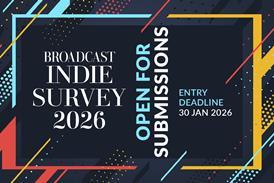
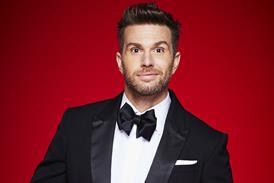
















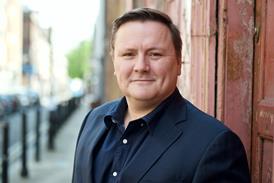
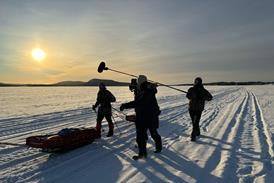
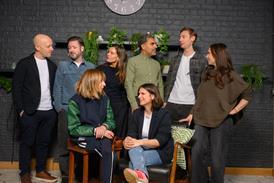
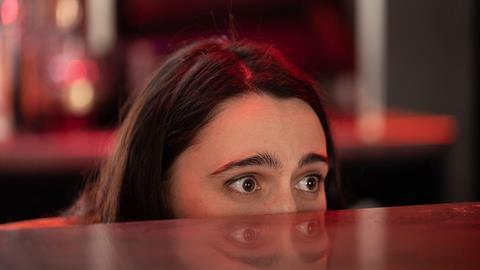






No comments yet